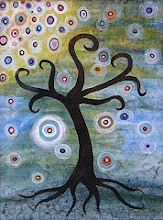Ghosts whispering in the wind: the title of my journal written when working in the Palestinian West Bank and Gaza Strip. My jottings about living with the Palestinian people, became the warp and the weft of their story. It’s also the first time in my life, when I took on board a cause that continues to absorb me. This was inevitable, who can live with a despairing nation and not be deeply moved?
They were like ghosts on the day when I drove Wajiha, Huda, and Rasmia, from the student’s hostel in Bethlehem to the Erez checkpoint the entrance to the Gaza Strip, their home, where we said goodbye. Watching them cross no-mans-land, the chimera on the road turned them into spectral figures. Would I ever see them again? Deep down feeling that was unlikely, they vanished in the fierce glare of the Mediterranean sun.
More than when in Iran, working in Palestine is the most defining period of my life. To be immersed in the culture, a uniquely formative experience. I returned in 1998 after the deaths of my parents and Kevin. That was a brief visit. Again in 2000 to complete some research, then optimism was more evident in the people. That was short lived when the second Intifada, unlike the first, was met with unprecedented bombing by Israel. Decent kind people I knew had their homes destroyed. The daily bombardments decimated familiar places in Bethlehem and Beit Jala. The peace masterminded in Oslo, which had always been tenuous, was dead.
Distanced and safe over here, I felt guilty for not being there, for not sharing this new horror with Palestinian friends. Their story had become my story, as if stitched on my skin like an embroidered Thobe. Mostly my thoughts were for the children, always the innocent victims of conflicts. There is a garden in the mountains beyond Hebron, where children play. Their mother and I together had planted the roses. Would I hold their tiny hands in mine again, see their eyes gaze in wonderment at the beauty of a rose? My anxiety eased somewhat when I called their mother. They were far enough from the focus of the bombing and safer. Her fear was the unpredictable Israeli settlers, who if riled thought nothing of evicting Palestinian families from their homes.
Life when working there from 1992 to 1996, for sure was not all gloom and misery. Mostly that was an exciting, happy adventure, especially with my dearest friend and her children. There is much I could say about the courage of this articulate, feisty Palestinian American woman, who when speaking street Arabic, often made people laugh. Like most women, her major concern is for her family. Living there was and still is unpredictable, an aspect one had to adjust to. Most foreign nationals were deeply committed to working there. Living in a warm friendly culture where the people are neighbourly, kind and generous, was downright homely.
 Diaries:Live From Palestine.
Diaries:Live From Palestine.
They were like ghosts on the day when I drove Wajiha, Huda, and Rasmia, from the student’s hostel in Bethlehem to the Erez checkpoint the entrance to the Gaza Strip, their home, where we said goodbye. Watching them cross no-mans-land, the chimera on the road turned them into spectral figures. Would I ever see them again? Deep down feeling that was unlikely, they vanished in the fierce glare of the Mediterranean sun.
More than when in Iran, working in Palestine is the most defining period of my life. To be immersed in the culture, a uniquely formative experience. I returned in 1998 after the deaths of my parents and Kevin. That was a brief visit. Again in 2000 to complete some research, then optimism was more evident in the people. That was short lived when the second Intifada, unlike the first, was met with unprecedented bombing by Israel. Decent kind people I knew had their homes destroyed. The daily bombardments decimated familiar places in Bethlehem and Beit Jala. The peace masterminded in Oslo, which had always been tenuous, was dead.
Distanced and safe over here, I felt guilty for not being there, for not sharing this new horror with Palestinian friends. Their story had become my story, as if stitched on my skin like an embroidered Thobe. Mostly my thoughts were for the children, always the innocent victims of conflicts. There is a garden in the mountains beyond Hebron, where children play. Their mother and I together had planted the roses. Would I hold their tiny hands in mine again, see their eyes gaze in wonderment at the beauty of a rose? My anxiety eased somewhat when I called their mother. They were far enough from the focus of the bombing and safer. Her fear was the unpredictable Israeli settlers, who if riled thought nothing of evicting Palestinian families from their homes.
Life when working there from 1992 to 1996, for sure was not all gloom and misery. Mostly that was an exciting, happy adventure, especially with my dearest friend and her children. There is much I could say about the courage of this articulate, feisty Palestinian American woman, who when speaking street Arabic, often made people laugh. Like most women, her major concern is for her family. Living there was and still is unpredictable, an aspect one had to adjust to. Most foreign nationals were deeply committed to working there. Living in a warm friendly culture where the people are neighbourly, kind and generous, was downright homely.





No comments:
Post a Comment